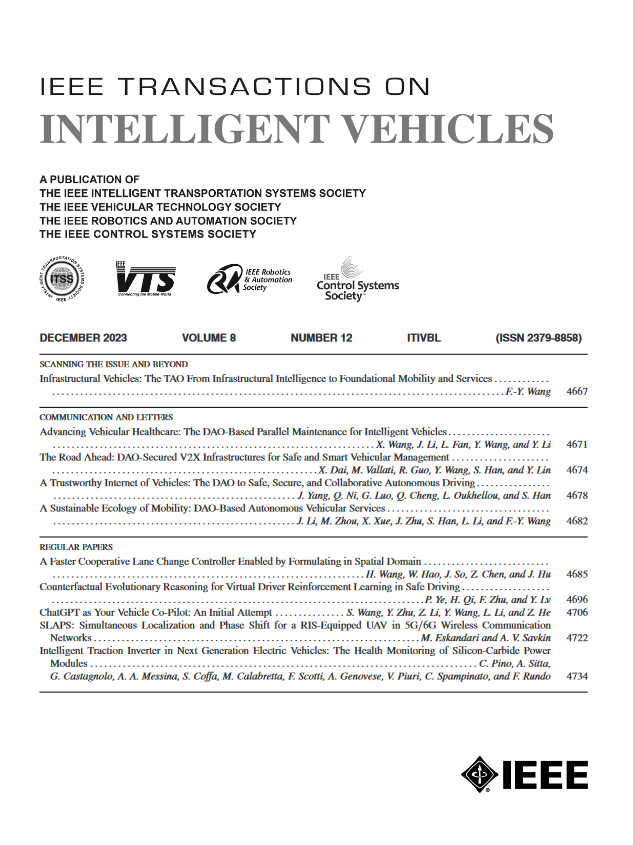Extending Operational Design Domain for Perception Systems Through Robust Learning
IF 14
1区 工程技术
Q1 COMPUTER SCIENCE, ARTIFICIAL INTELLIGENCE
引用次数: 0
Abstract
Perception modules in Autonomous Driving Systems (ADS) provide excellent performance in simple, constrained environments but generally have precarious performance in real driving situations with various weather and lighting conditions. Therefore, robust perception performance in new and unanticipated domains is a crucial factor for the large-scale application of autonomous driving, especially when considering unexpected scenarios outside the predefined Operational Design Domain (ODD). This paper proposes a novel approach to extending the ODD for perception modules in ADS through robust learning. The model's robustness is characterized by the anchor data and corresponding perturbation model. The robust learning task is then formulated as a min-max optimization problem conjugated to the perturbation model and a semantically parameter-defined constrained exploration space. The proposed robustify procedures solve the optimization problem in terms of robustness-related batch loss and worst-case loss, which improves the model resilience in multiple domain shift experiments, including virtual-real and weather changes. This paper presents experimental results that demonstrate the efficacy of robust learning approaches in extending the ODD for perception modules and provides insights into future research directions in this field.通过鲁棒学习扩展感知系统的操作设计域
自动驾驶系统(ADS)中的感知模块在简单、受限的环境中提供出色的性能,但在各种天气和光照条件下的真实驾驶情况下,通常表现不稳定。因此,对于自动驾驶的大规模应用来说,在新的和未预料到的领域中稳健的感知性能是一个至关重要的因素,尤其是在考虑预定义的操作设计领域(ODD)之外的意外场景时。本文提出了一种通过鲁棒学习扩展ADS中感知模块的ODD的新方法。模型的鲁棒性由锚点数据和相应的扰动模型来表征。然后将鲁棒学习任务表述为与扰动模型和语义参数定义的约束探索空间共轭的最小-最大优化问题。所提出的鲁棒性方法解决了鲁棒性相关的批损失和最坏情况损失的优化问题,提高了模型在包括虚实和天气变化在内的多域漂移实验中的弹性。本文提出了实验结果,证明了鲁棒学习方法在扩展感知模块ODD方面的有效性,并为该领域的未来研究方向提供了见解。
本文章由计算机程序翻译,如有差异,请以英文原文为准。
求助全文
约1分钟内获得全文
求助全文
来源期刊

IEEE Transactions on Intelligent Vehicles
Mathematics-Control and Optimization
CiteScore
12.10
自引率
13.40%
发文量
177
期刊介绍:
The IEEE Transactions on Intelligent Vehicles (T-IV) is a premier platform for publishing peer-reviewed articles that present innovative research concepts, application results, significant theoretical findings, and application case studies in the field of intelligent vehicles. With a particular emphasis on automated vehicles within roadway environments, T-IV aims to raise awareness of pressing research and application challenges.
Our focus is on providing critical information to the intelligent vehicle community, serving as a dissemination vehicle for IEEE ITS Society members and others interested in learning about the state-of-the-art developments and progress in research and applications related to intelligent vehicles. Join us in advancing knowledge and innovation in this dynamic field.
 求助内容:
求助内容: 应助结果提醒方式:
应助结果提醒方式:


